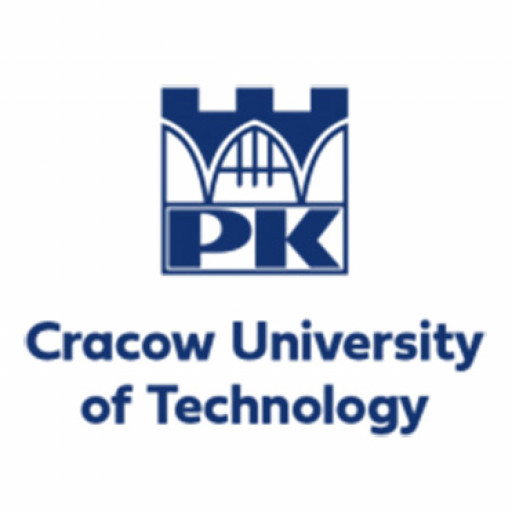Photos of university / #newcastleuni
The BEng Chemical Engineering programme at Newcastle University Medicine Malaysia offers students a comprehensive education in the principles and practices of chemical engineering, preparing graduates for a wide range of careers in industries such as pharmaceuticals, petrochemicals, energy, environmental protection, and manufacturing. Designed to provide a strong foundation in chemistry, mathematics, physics, and engineering principles, the programme combines theoretical knowledge with practical skills through laboratory work, design projects, and industrial placements. Over the duration of the course, students will explore core topics such as process engineering, heat and mass transfer, chemical reaction engineering, thermodynamics, and process control. The curriculum is structured to develop problem-solving abilities, analytical thinking, and innovative approaches to engineering challenges. Emphasising sustainability and safety, the programme also explores contemporary issues like green chemistry, renewable energy, and environmental management. Students will benefit from state-of-the-art laboratories and facilities, as well as access to industry-standard software and equipment, facilitating hands-on learning experiences. The programme is delivered by experienced academic staff committed to high-quality education and research. Throughout their studies, students will have opportunities for industrial visits, internships, and collaboration with industry partners, enhancing their employability and professional skills. The degree aims to produce graduates who are not only technically proficient but also ethically responsible and globally aware, capable of contributing meaningfully to society and the advancement of chemical engineering. Upon graduation, students will be equipped to pursue careers in process design, plant operation, research and development, consultancy, or to pursue further postgraduate studies in specialized fields. This programme aligns with international standards and prepares students to meet the needs of a dynamic and evolving industry, fostering lifelong learning and continuous professional development in the field of chemical engineering.
The Bachelor of Engineering (Honours) in Chemical Engineering at Newcastle University Medicine Malaysia is a comprehensive program designed to equip students with a strong foundation in chemical engineering principles, combined with practical skills and industry-relevant knowledge. This programme offers a multidisciplinary approach, integrating core sciences such as chemistry, physics, and mathematics with specialized engineering modules to prepare graduates for careers in diverse sectors such as pharmaceuticals, energy, food processing, and environmental management. Throughout the course, students engage in rigorous coursework, laboratory training, and project work that foster problem-solving abilities, analytical thinking, and innovative design skills. The curriculum emphasizes sustainable engineering practices and the responsible use of resources, aligning with global standards and industry needs. Students also benefit from opportunities for internships and industrial placements, enabling them to gain real-world experience and professional insights. The program’s teaching methodology combines lectures, tutorials, teamwork, and research projects, supported by state-of-the-art laboratories and digital learning resources. Upon graduation, students will be capable of designing, analyzing, and optimizing chemical processes, ensuring safety and environmental compliance. They will also possess strong communication and teamwork skills, preparing them for leadership roles in the evolving chemical engineering sector. The program aims to produce well-rounded engineers who can contribute innovatively to scientific advancements and sustainable development. This degree serves as a solid foundation for further postgraduate studies or immediate entry into the workforce in roles such as process engineers, project managers, research specialists, or quality assurance professionals. Graduates are expected to be ethical practitioners committed to continuous learning and professional development in a global context.
Entry requirements for the BSc Chemical Engineering programme at Newcastle University Medicine Malaysia typically include a strong academic background in relevant subjects such as Mathematics, Physics, and Chemistry at pre-university level. Applicants are generally required to hold qualifications equivalent to A-levels, with specific grade requirements often set at BBC or above, depending on the year of application. Additionally, applicants from non-native English-speaking countries need to demonstrate proficiency in English through standardized tests such as IELTS or TOEFL; Newcastle University Medicine Malaysia usually seeks an IELTS score of at least 6.0 overall, with no individual component lower than 5.5.
Applicants are also expected to submit personal statements outlining their motivation for studying Chemical Engineering, relevant work experience if any, and their interest in the programme’s focus areas such as process engineering, materials science, and sustainability. Some applicants may be required to attend an interview or give evidence of extracurricular activities demonstrating teamwork, leadership, or problem-solving skills.
The university prefers applicants who demonstrate a strong analytical mindset, problem-solving abilities, and a keen interest in scientific and technological innovations related to chemical processes and energy efficiency. For international students, additional documentation such as academic transcripts translated into English, passport copies, and proof of financial means are also necessary.
The programme admissions team evaluates applicants holistically, considering both academic achievements and personal qualities, to select students who will thrive in the rigorous and interdisciplinary environment of the Chemical Engineering course. The entry requirements may be slightly flexible for exceptional candidates or those with relevant work experience or additional academic qualifications.
Prospective students should consult the official Newcastle University Medicine Malaysia admissions webpage for the most current and specific requirements, as these may vary slightly year to year or depending on applicant background.
The financing studies for the Chemical Engineering programme at Newcastle University Medicine Malaysia are designed to provide students with comprehensive financial support options to facilitate their academic journey. Tuition fees are determined annually and are subject to change; prospective students are advised to consult the university's official website for the most current figures. The university offers a variety of funding opportunities, including government-funded scholarships, university-specific bursaries, and external scholarship programmes. These financial aids are awarded based on academic merit, financial need, or specific demographic criteria, aimed at ensuring that talented students from diverse backgrounds can access quality education without undue financial burden.
In addition to scholarships and bursaries, students may access financial support through education loans provided by local or international financial institutions. Newcastle University Malaysia collaborates with several banking partners to facilitate manageable repayment plans and competitive interest rates for enrolled students. The university also offers part-time employment opportunities on campus, which enable students to earn a portion of their living expenses while gaining valuable professional experience. These employment options are closely monitored to ensure they do not negatively impact students’ academic performance.
Furthermore, the university provides guidance and advice on financial planning, helping students to budget effectively and access relevant funding sources. Applicants are encouraged to explore external funding options, including national education grants or employer sponsorships where applicable. International students can also consider specific scholarships designed to support their study abroad experience. Overall, Newcastle University Medicine Malaysia is committed to making the Chemical Engineering programme financially accessible by combining a range of funding options, fostering an inclusive academic environment where financial concerns do not hinder educational aspirations.
Chemical Engineering at Newcastle University Medicine Malaysia offers a comprehensive and innovative undergraduate program designed to equip students with the fundamental principles and practical skills necessary for a successful career in the chemical and process industries. The degree program emphasizes a blend of theoretical knowledge and hands-on experience, preparing graduates to tackle complex engineering challenges in areas such as energy, manufacturing, pharmaceuticals, and environmental protection. The curriculum covers key areas including chemical process design, thermodynamics, fluid mechanics, reaction engineering, materials science, and safety management.
Students benefit from state-of-the-art laboratory facilities and industry-focused projects, facilitating experiential learning and fostering strong problem-solving abilities. The program also incorporates modules on sustainable and environmentally conscious engineering practices, reflecting the global shift toward greener technologies. Throughout their studies, students engage in teamwork and communication exercises, essential skills for professional success. The university maintains strong links with industry partners, providing internship opportunities and exposure to real-world engineering environments.
The program aims to develop graduates who are not only technically proficient but also ethically responsible, innovative thinkers capable of driving advancements in the chemical engineering sector. Newcastle University Medicine Malaysia's multicultural and collaborative campus environment supports diverse student populations and promotes a global perspective on engineering challenges. Upon successful completion, graduates are well-prepared for employment in various sectors or to pursue postgraduate studies. The degree aligns with international standards, and graduates often find employment in Malaysia, the region, or globally in roles such as process engineers, manufacturing managers, research scientists, or technical consultants.
Overall, the Chemical Engineering program at Newcastle University Medicine Malaysia offers rigorous academic training combined with practical experiences and industry engagement, ensuring students graduate with the confidence and competence to excel in a competitive and rapidly evolving field. The curriculum is regularly updated to incorporate emerging technologies and industry trends, giving students a cutting-edge advantage when entering the workforce.










